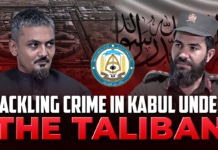We all search for truth and seek meaning in our lives. It’s natural and part of being human, and it was this desire which led me to Mecca, writes Sarah Ayub.
Earlier this year, I felt a sense of urgency to do the Umrah – a lesser (but still significant) pilgrimage than the obligatory Hajj, which is one of the pillars of the Muslim faith. I didn’t know much about what I had to do and I had always contemplated putting it off until I was “ready,” but then I concluded that there was no time like the present!
I remember feeling excited, nervous and also quite scared as I boarded the Jeddah-bound plane, which in typical Saudi-style, departed over 40 minutes late.
I saw men dressed in the two white pieces of cloth which they are required to wear from the miqaat (the point at which Muslims performing the Hajj or Umra must enter into the correct spiritual and physical state i.e. ihram). The simplicity of it, I thought, was quite beautiful; basic clothing, no makeup, nothing fancy, just back to basics.
The colourful bustle of Jeddah was a welcome change from the monotony and stagnancy of the Saudi capital Riyadh, where I’d been living for the past year. The array of new faces, different languages and vibrant personalities from around the world really brought this port city to life.
There was a sense of deep-rooted history and soul in Jeddah, which was in stark contrast to the sterile and somewhat soulless Riyadh – home to the al Sauds (as well as an increasing number of pointless skyscrapers). From Jeddah, I would make my way to Islam’s holiest site.
Mecca
Subscribe to our newsletter and stay updated on the latest news and updates from around the Muslim world!
A 60-riyal taxi ride later, I was in Mecca, another metropolitan city with a rich history of trade – something that was quite obvious from the moment I arrived. But when I walked from the point the taxi dropped me off, to Al-Masjid Al-Haram (“the Grand Mosque”), the atmosphere transformed from bustle and noise, to tranquillity.
As I looked up and saw the mosque, the feeling was surreal. This could have been a dream. I just couldn’t believe I was there, in a land where past Prophets had live and died and where history had been written.
 Now, I would love to say that this was going to be an entirely positive experience, but the sight of cranes, scaffoldings and the grotesquely imposing and bafflingly misplaced clock tower was disappointing. Nonetheless, I refused to let it cast much more than a physical shadow over me, as I continued on my way to perform Umrah.
Now, I would love to say that this was going to be an entirely positive experience, but the sight of cranes, scaffoldings and the grotesquely imposing and bafflingly misplaced clock tower was disappointing. Nonetheless, I refused to let it cast much more than a physical shadow over me, as I continued on my way to perform Umrah.
I fulfilled the rituals; circumambulating the Kaaba which was reconstructed by the prophet Ibrahim, walking between the two hills where Hajar, the wife of Ibrahim, once ran, frantically searching for water to quench her baby’s thirst. Throughout my life, I’d seen images of the Kaaba with Muslims of all nationalities circumambulating it – images which resembled the planets orbiting the sun. There was a sense of unity and harmony in the motions, which I was now part of. If had to summarise what I felt in a word, it would be peace.
On my way home, I found myself reflecting on the true meaning of Islam and what it means to be a follower of the faith. I thought about the excellent examples of etiquette and conduct in speech and actions demonstrated by all the Prophets of the past; their messages were about justice, unity, equality, humility.
This made me sad, as I knew that many people had forgotten, ignored or were ignorant of these examples. However, the experience also renewed my resolve to strive to be better, to do the right thing no matter what the consequences, and ultimately, to live the way that God intended.
As the plane departed from Jeddah, I took out a pocket-sized Quran from my bag and opened it. My eyes were drawn to a particular verse, which seemed to be the best and most fitting end to my Umrah experience:
“Oh you who believe, be persistently standing firm for justice, witnesses for Allah, even if it be against yourselves or parents and relatives. Whether one is rich or poor, Allah is more worthy of both. So follow not personal inclination, lest you not be just. And if you distort your testimony or refuse to give it, then indeed Allah is ever, with what you do, Acquainted.” (Quran 4:135)







![Monsoon Revolution: Bangladesh 2.0 [Short Film]](https://5pillarsuk.com/wp-content/uploads/2024/11/Monsoon-thumbnail-218x150.png)
![The Taliban’s war on drug addiction [Short film]](https://5pillarsuk.com/wp-content/uploads/2024/09/IMG_1988-2-218x150.png)











